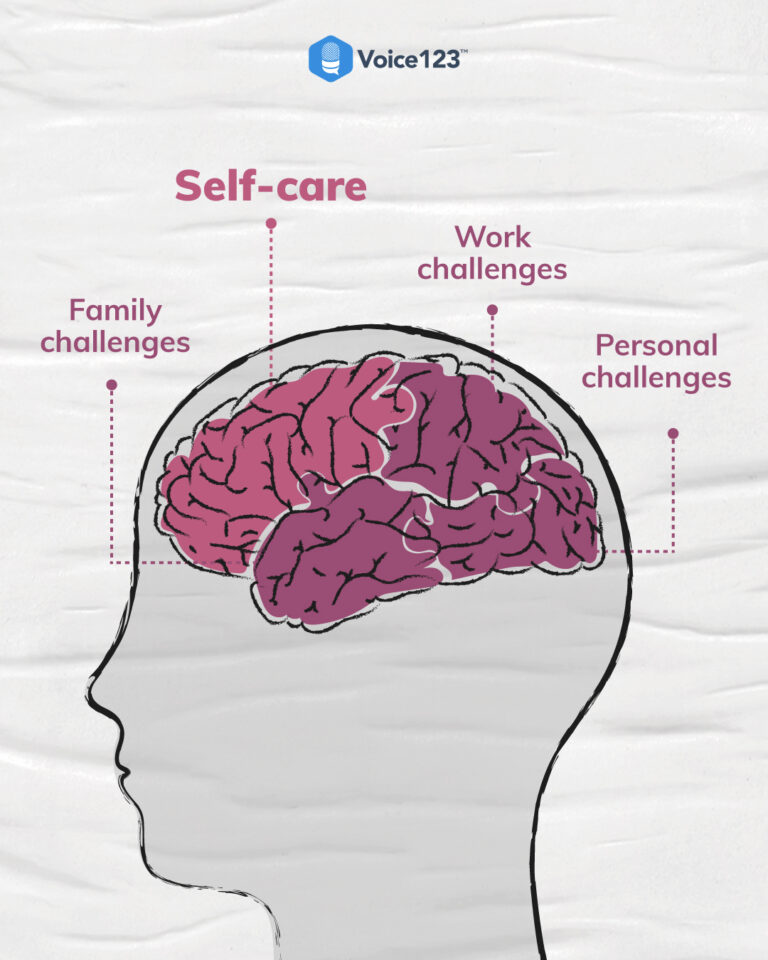written by Marie Fincher
Before we even get to voice over and finding the right voice for your project, let’s just acknowledge this reality in today’s business environment: without great supportive audio and visual media, marketing efforts will fall flat.
Why? Because no consumer wants to read walls of text – they are in a hurry and impatient when they seek information, entertainment, or inspiration. They want to ‘see’ and ‘hear’, not read.
Marketers get this, and they rarely put out a piece of content without worthwhile visuals and other media. In fact, research shows that the human brain processes what it sees and hears faster than what it reads and also retains that information better and longer.
Another thing about content consumers: Their attention span is terribly short. If they are not engaged within the first few seconds, they will scroll, click and go elsewhere. This is a huge challenge for marketers, who must ensure they capture the target audience’s attention immediately.
Video and animation have taken center stage for effective marketing content. And what the eye sees is important. Just as important, though, are the voices behind those visuals. In fact, studies have shown that the sound of a speaker’s voice is as much as two times as important as what that speaker is saying. Without a compelling and ‘authentic’ voice (one that meets the mood, tone, and style), the message will not resonate. And the right voice adds to trust and confidence from an emotional standpoint.
Consider the vocal differences of Darth Vader, Chewbacca, CP30, and R2D2 in Star Wars. Their voices match their characters and personalities. Likewise, the voiceovers you choose for your projects must do the same.

So, how do you achieve that perfect voice over? Here are seven strategies to make that happen.
1. Identify the style, tone, and type of project you are crafting
This is obviously a key element. A video crafted about luxury jewelry to a ‘high-end’ audience will obviously need a different voice, tone, and style than one used to market extreme sports equipment or children’s toys. For one, you may want a very formal voice tone (perhaps a British accent?). However, for sports equipment, you’d want a tone and style suggesting competitive strength, and for children’s toys, obviously a playful, enthusiastic, fun tone.
2. Prepare the script
You cannot possibly audition and select a voice actor without a script for them to use. Remember, this is much like auditioning actors for parts in a play or a movie. They get the script, get time to read their parts, and then audition by interpretively ‘reading’ those parts in front of the director and producer.
Creating a compelling script is, in itself, a tough challenge. Many marketers who create content are not necessarily skilled in scriptwriting, so if this sentence speaks to you, it’s time to bring in outside expertise! A compelling script is a critical piece of the content marketing puzzle, and certainly a apex requirement before looking for a voice actor.
3. Finding voiceover actors to audition
Traditionally, voice actors were represented by individual agents or agencies. Often, when businesses contracted video production companies, those companies had a roster of preferred voice actors to choose from as well.

Many — if not most — voice actors today have profiled themselves on internet platforms such as Voice123 or freelance job websites. This adds to the marketer’s workload because voicebanks and databases need to be searched, actor profiles reviewed and projects calling for auditions posted.
4. Consider the voice over budget constraints
Before making a decision which route to take, determine and set budget parameters. For small and/or startup businesses, using a traditional brick and mortar talent agency will be out of the question because it’s by far the priciest option.
Freelancers are usually the other extreme, but finding one that has the right voice and can deliver professional results can be unbelievably time-consuming.
Online platforms like Voice123 provide a worthwhile middle ground in terms of both cost and time because they are generally geared to serving the needs of hardpressed marketers!
5. Don’t necessarily look for perfection
Consumers are savvy and quite informal in their searches for products and services. They want to deal with people like themselves — and that’s a crucial distinction. Voice overs were performed in a certain way back in the day in order to sound what was then stamped as professional. This has become something of a turn-off for today’s consumers because they regard ‘salesy’ as fake. For this reason, ‘announcery‘ voices should be avoided at all costs.
Consumers want to establish relationships with brands, not be subjected to perfectly-produced and often over-the-top media. Unless you are selling very high-end items, you want a more personal, informal message and presentation. As you audition voice actors, make sure that they can deliver the engaging informality that will work for your brand.
6. The contract

Do you need a contract? Yes, you do. It’s important to spell things out. If you deal with an online agency, you will usually complete a form specifying all of the details of your business, your voiceover needs, etc. The agency will have forms so no important details fall by the wayside. They’ve done this before.
Whatever the case may be, clarity is crucial. Keep the following aspects in mind:
● How much are you prepared to pay the actor to voice your project? This usually depends on the length of the piece, as well as usage. Agencies don’t always require a 50% commissioning fee, but some do. The same applies to freelancers. Agree on price upfront and be very clear about a payment schedule.
● What is your timeline for completion and delivery back to you?
● Can you request revisions should you not be happy with the delivered product?
● Do you need to look into licensing and/or future royalty fees?
● Who is responsible for the equipment and technical infrastructure?
● What audio format?
● How about background music? Who’ll select and supply that? What about usage fees?
7. Choose wisely
To reiterate: the voice behind your marketing messaging speaks for your brand and will impact a viewer’s emotional response to your message and your company. As you audition candidates, it may be worth your while to get a second opinion. Some companies use a small panel of long-term customers to listen to several auditions and choose the one they like best. When you find the perfect fit for your brand, that voice should probably become the one you use over the long haul for the sake of consistency over time. A famous example of this is the Geico Insurance gecko. He has a distinctive voice fully associated with the brand.
Voice over: in summary
You know your brand and you know your audience. Choosing the right voice actor is a key element in your marketing messages and your emotional appeal to your audience. Using these seven tips should ensure you end up with a voice for your brand that resonates and gives your brand a distinct personality.
Author Bio: Marie Fincher is a seasoned marketing consultant who works with brands in their messaging. She has been a writer for the copywriting departments of two major writing services, Trust My Paper and Supreme Dissertations, both of which prepare content and scripts for business marketing campaigns. Marie is also a frequent presenter at workshops for marketing in the digital age.





















































